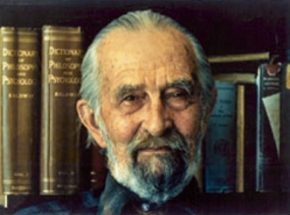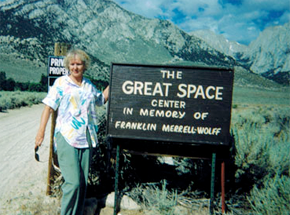FMWF Rejects Settlement Proposal
This is the text of a letter written by Doroethy Leonard’s attorney, Brian K. Stanley, Esq., to opposing counsel, G. Todd Jackson. Esq., regarding the rejection by the Franklin Merrell-Wolff Fellowship, Inc., under Executive Director, Robert Holland, of the proposal to settle their “Breach of Contract” lawsuit against her. You may contact Doroethy directly for the original PDF version.
June 10, 2015
Dear Mr. Jackson,
As you have previously observed, the parties discussed the idea of the possible settlement of this litigation immediately after Prof. Holland testified on behalf of the Plaintiff corporation on April 21. You say you and the Professor “left that meeting with the understanding that a settlement offer, with the specifics of additional materials to be provided, was forthcoming, and were hopeful that this would occur.” Before forwarding Mrs. Leonard’s offer, however, I sought your assurance that the offer would not be rejected and then itself used against her, directly or indirectly.
I have proposed two different formulations according to which I believe such an assurance might be framed. First, I suggested the adoption of the standard developed in Silverthorne Lumber Co. v. U.S., 251 U.S. 385, 392, 40 S.CT. 182 (1920) and its progeny, which would have required the Plaintiff corporation, before using evidence of matters described in the offer, to show that such evidence had been obtained independently of the offer. You rejected that suggestion.
Then I suggested that the Plaintiff corporation simply agree not to use any evidence at trial that has not already (now, before transmittal of Mrs. Leonard’s offer) been disclosed in one of the corporation’s eight (or is it nine, now?) disclosure statements. I thought that that would effectively attain the same objective. I also thought it was a condition you would have no difficulty in accepting, since the Court’s formal written order of September 24, 2014 already imposes the same limitation on the use of evidence at trial, “except upon order of the court for good cause shown.” Your agreement to this second proposed formulation would simply have ensured that Plaintiff’s learning of some matter through Mrs. Leonard’s offer could not be presented by Plaintiff as such “good cause.” You also rejected this second proposed formulation.
I invited you to propose your own framing of an agreement which would ensure that Mrs. Leonard’s offer could not be rejected and then used against her, directly or indirectly. You have not deemed it worthwhile to make the attempt, but instead you have seen fit to question Defendant’s bona fides in broaching the idea of settling this case. I have to say that the Plaintiff’s intransigence causes me to wonder why you and Prof. Holland looked forward to receiving from Mrs. Leonard “the specifics of additional materials to be provided”–in order to get this cumbersome litigation resolved with some semblance of benefit to the Fellowship, or in the hope of inducing Mrs. Leonard to provide ammunition to be used against her.
You have expressed your concern that there be no debate as to the events that led to the unsuccessful conclusion of settlement negotiations. So long as the Plaintiff’s “deep pockets” are available to fund it, I expect there will be debate. Nevertheless, I have composed this letter in the hope of keeping the record straight.
Sincerely,
Brian K. Stanley,
Of counsel, for the Firm
UPDATE (November 2018)
The Franklin Merrell-Wolff Archive is presently owned with copyright by The Franklin Merrell-Wolff Fellowship, Inc. Items from the Archive on this website are marked with an asterisk (*).


